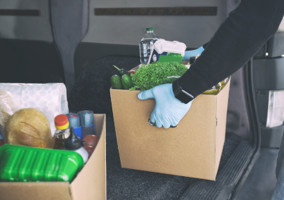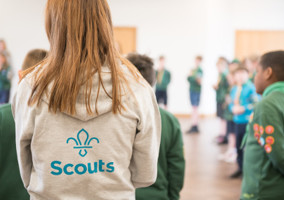There has been a marked decrease in those giving to charitable causes and formal volunteering in the past year, according to a recent survey carried out for the government.
However, informal volunteering increased to the highest ever recorded level by the Community Life Survey (CLS). The survey is published annually by the Department for Digital, Culture, Media and Sport.
Research firm Kantar collects information about whether those aged 16 and over have volunteered and given to charitable causes. It surveyed 10,197 adults across England during different periods of lockdown measures between April 2020 to March 2021.
It reports that 63% of respondents said they had given to charitable causes in the last four weeks.
This marks a 12 percentage point decrease from 2019-2020 when three-quarters said they had donated and is the lowest proportion recorded since the research project began.
Women were more likely than men to have given to charity in the last four weeks, 67% compared to 59%, and the lowest proportion of charitable giving was from the 16 to 24 age group.
There was no variability between ethnic groups in terms of charitable giving.
The average amount given was £27, excluding those who donated £300 or more. From 2020 to 2021, 18% of respondents gave over £50, which was higher than in 2019 to 2020 at 15%.
Giving to hospitals and hospices in line with 2019-2020
The survey also shows that from those who gave to charitable causes, 24% gave to hospitals and hospices which was similar to 2019-2020 rates.
It also finds that 22% gave to medical research which was five percentage points lower year prior, and 19% gave to animal welfare which was in line with previous rates.
When respondents were asked what would either encourage them to start giving to charitable causes or to increase the amount they currently donate, 35% said having more money.
Moreover, 28% said having confidence that the charity or organisation to use the money effectively would increase the likelihood. Others, 24%, said knowing that their money was going to be spent locally.
Formal volunteering decreases while informal volunteering is on the rise
The report shows that 62% of respondents have volunteered in some capacity over the last 12 months. 41%, approximately 19 million people in England, volunteered at least once a month. This is around the same as the previous year's findings, but there has been a shift in the type of volunteering.
Formal volunteering is the lowest that it has been recorded by the CLS. During the year some types of formal volunteering, such as helping out in a charity shop were not possible due to lockdowns. The number of respondents volunteering formally at least once a month in the past 12 months decreased to 17%, from 23% the year prior.
More people living in rural areas participated in formal volunteering than those in urban areas, with 24% of those in rural areas doing so once a month, compared to 16%. People living in the least deprived areas showed higher participation than those from the most deprived areas.
Despite the drop in formal volunteering, the survey shows informal volunteering increased to the highest level since the survey began. Those volunteering informally, which covers things like picking up shopping for neighbours, at least once a month in the past 12 months increased to a third of respondents. In 2019-20 it was 28%.
Informal volunteering was more popular for women than men. 37% of women said they did something at least once a month, compared to 28% of men.
'Difficult times truly bring out the best in us as'
Fundraising Magazine is a practical and inspiring magazine that provides fundraising professionals with the tools to unlock new revenue streams, yield better results from campaigns and boost donor income. Subscribe today to receive 10 issues per year and access to premium fundraising content on civilsociety.co.uk. Find more information here and subscribe today!













